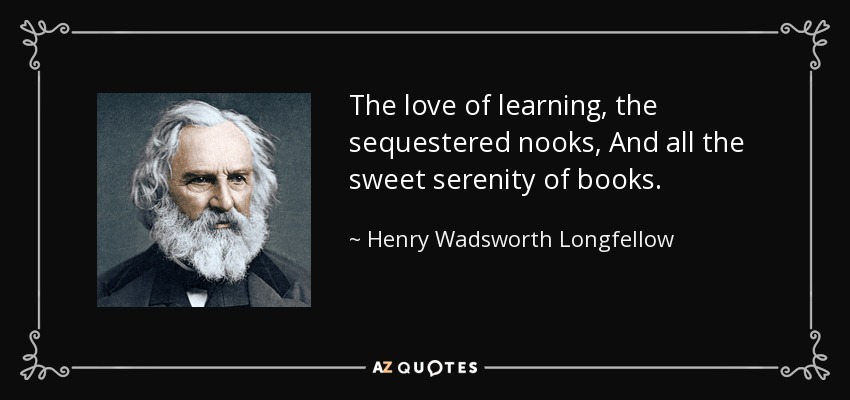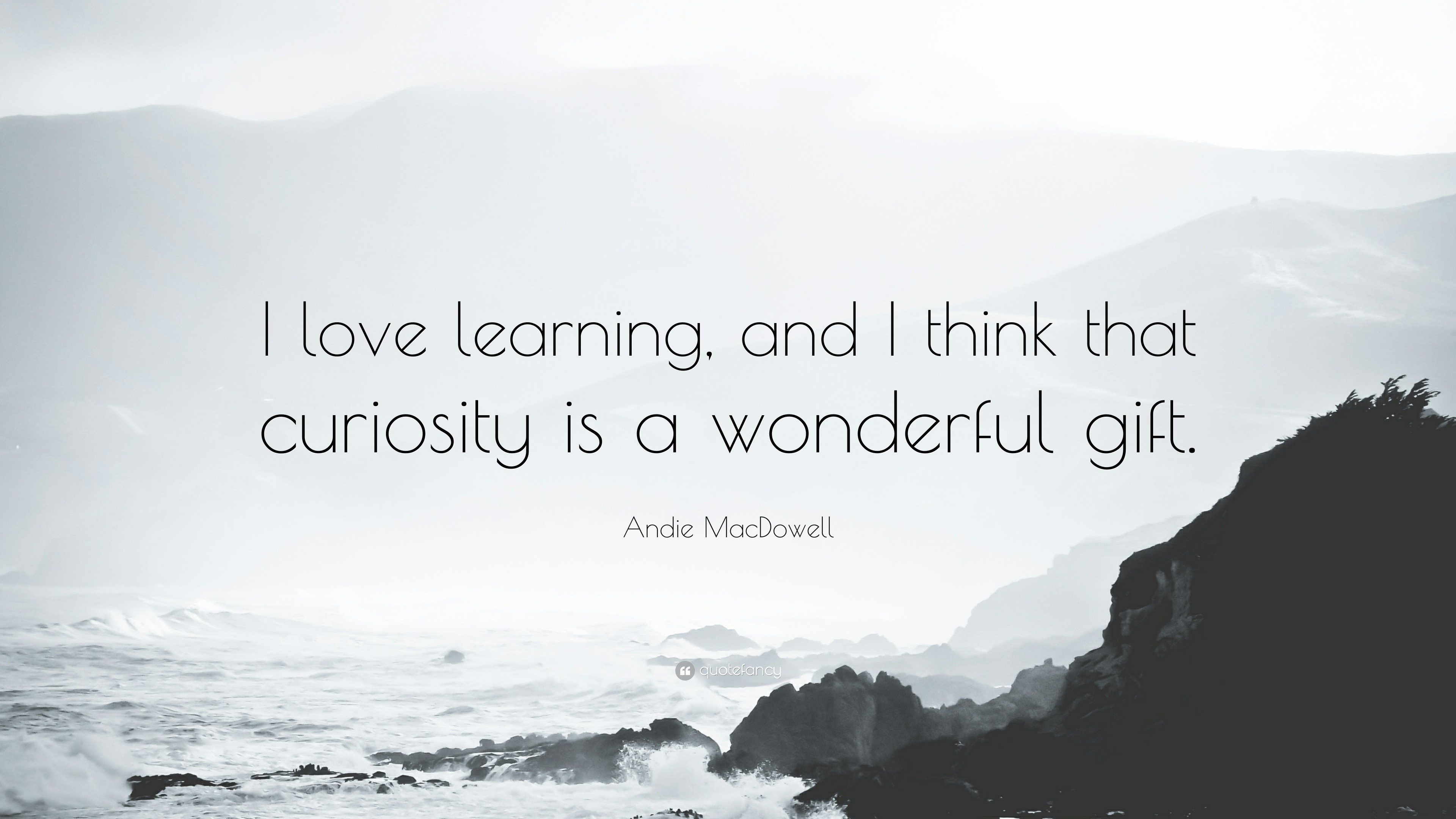
Take a class just for fun (cooking, yoga, auto mechanics, astronomy, etc.)
Go to an online search engine like Ask Jeeves, ask a question, and explore sites you never otherwise would have discovered.
Every day, read a chapter of a book just for fun.
Decide to become an expert in a specialized topic and begin collecting (and reading) books on the subject.
Every weekend, discover a new area of your neighborhood, town, or city.
Subscribe to a newspaper or a periodical of special interest.
Join an internet discussion group devoted to a topic that you think might be interesting.
Key Research:
Essay on the Love of Learning from David McCullough. Psychological impact of Lover of Learning:
Put into action the recommendations from the Authentic Happiness Coaching Newsletter on Love of Learning
Tayyab Rashid and Afroze Anjum offer 340 Ways to Use VIA Character Strengths including these four for Love of Learning:
Try one of these learning style surveys:
|
|
Imagine what would would happen if you watched just one Ted a day. In 365 days you would have learned so much…and only scratched a 10th of videos in their library. Here is the top 12 most viewed Ted Talks of all time:
Source: Curiosity Thrills This Cat and more here

Podcasts to feed your Love of Learning:
Before jumping into podcasts, you probably have already know TED.Did you know you can get create a curated email delivery in just a few steps:
Tune into this fantastic youtube channel “Today I Found Out…”
Pretty much any podcast will feed your love of learning. Some to get you going:
General
- The Way I heard it Mike Rowe of Dirty Jobs fame, takes the guy in the bar format to share a story, a mini biography of famous people past and present. Episodes are typically five minutes, but will take you far deeper into than you would expect. Each episode starts with a avague but intriguing aspect that leaves you guessing who he is talking about. Check out these episodes:
- Episode 69: “A Little Dab’ll Do Ya!”
- Episode 67: Charlie’s Big Break
- Episode 59: A Hero Under the Influence
- Episode 54: The Boy Who Loved to Fly
- Episode 15: Sorry, Wrong Number
- Episode 3: Clean Up On Aisle 4!
- The Daily This moment demands an explanation. This show is on a mission to find it. Only what you want to know, none of what you don’t. Hosted by Michael Barbaro. Powered by New York Times journalism. Twenty minutes a day, five days a week, ready by 6 a.m.
- Fresh Air Fresh Air from WHYY, the Peabody Award-winning weekday magazine of contemporary arts and issues, is one of public radio’s most popular programs. Hosted by Terry Gross, the show features intimate conversations with today’s biggest luminaries.
- Freakanomics Radio Have fun discovering the hidden side of everything with host Stephen J. Dubner, co-author of the best-selling “Freakonomics” books. Each week, hear surprising conversations that explore the riddles of everyday life and the weird wrinkles of human nature—from cheating and crime to parenting and sports. Dubner talks with Nobel laureates and provocateurs, social scientists and entrepreneurs — and his “Freakonomics” co-author Steve Levitt. After just a few episodes, this podcast will have you too thinking like a Freak. Produced by WNYC Studios, home of other great podcasts such as “Radiolab,” “Death, Sex & Money,” and “On the Media.”
Topic Specific:
- Biology: Listen to Futures in Biotech podcast and Microbe TV
- Chemistry: Chemistry podcasts
- History:The China History PodcastLASZLO MONTGOMERY hails from Claremont California whose business takes him to China. Amateur historian does not do justice to this world class sinophile. You can listen from any episode as he does it by topic, not by chronology. Some topics take 2 or 3 or even 10 episodes. I have learned so much.Hardcore HistoryIn “Hardcore History” journalist and broadcaster Dan Carlin takes his “Martian”, unorthodox way of thinking and applies it to the past. Was Alexander the Great as bad a person as Adolf Hitler? What would Apaches with modern weapons be like? Will our modern civilization ever fall like civilizations from past eras? This isn’t academic history (and Carlin isn’t a historian) but the podcast’s unique blend of high drama, masterful narration and Twilight Zone-style twists has entertained millions of listeners.
- Economics: Listen Economics Podcasts: NPR’s Planet Money and Freakonomics Radio
- Engineering: Engineering Commons and How do you Engineer
- History: Dan Carlin Hardcore History and China History Podcast
- Philosophy: Philosophy: The ClassicsAuthor Nigel Warburton reads from his book Philosophy: The Classics which is an introduction to 27 key works in the history of Philosophy.
- Political Science: 538 and The Guardian Weekly’s Politics Weekly and UChicago Axe Files
- Psychology: Listen to the Psychology Podcast and Listen to Neurscience podcasts
- Sociology: Various podcasts on sociology
- Podcast: “The Learning Leader Show” Episode: “The Art of Learning” – Host Ryan Hawk interviews guests who share insights and strategies for lifelong learning, personal growth, and mastering new skills.
- “The Love of Learning” – The Ezra Klein Show Summary: Ezra Klein discusses the joys and benefits of being a lifelong learner with guests like writer Robert Macfarlane. URL: https://www.nytimes.com/2021/11/11/opinion/ezra-klein-podcast-robert-macfarlane.html
- “The Power of Passion and Perseverance” – The Knowledge Project with Shane Parrish Summary: This episode examines the attitudes and habits that allow people to persistently pursue learning new subjects. URL: https://fs.blog/knowledge-project/angela-duckworth/
- “You Can Learn Anything” – The EdUp Experience Summary: EdUp founders discuss the mindsets and strategies for effectively tackling new topics and skills. URL: https://edupovertyline.com/you-can-learn-anything-2/
- “Develop a Passion for Learning” – The Rich Roll Podcast
Summary: Inspiration for becoming more curious and cultivating an eager student mindset. URL: https://richroll.com/podcast/chris-guillebeau-2/ - “The Joy of Learning” – On Being with Krista Tippett Summary: Tippett explores the dimensions of lifelong learning from both personal and spiritual perspectives.
URL: https://onbeing.org/programs/elizabeth-alexander-the-joy-of-learning/
- Try any meditation from Insight Timer
Learn more:
- Tip from VIA: Merge mindfulness with a meditation reading.
- Can Meditation and Mindfulness Improve Your Learning?

Quotations on Love of Learning










 Learn about how you learn
Learn about how you learn













